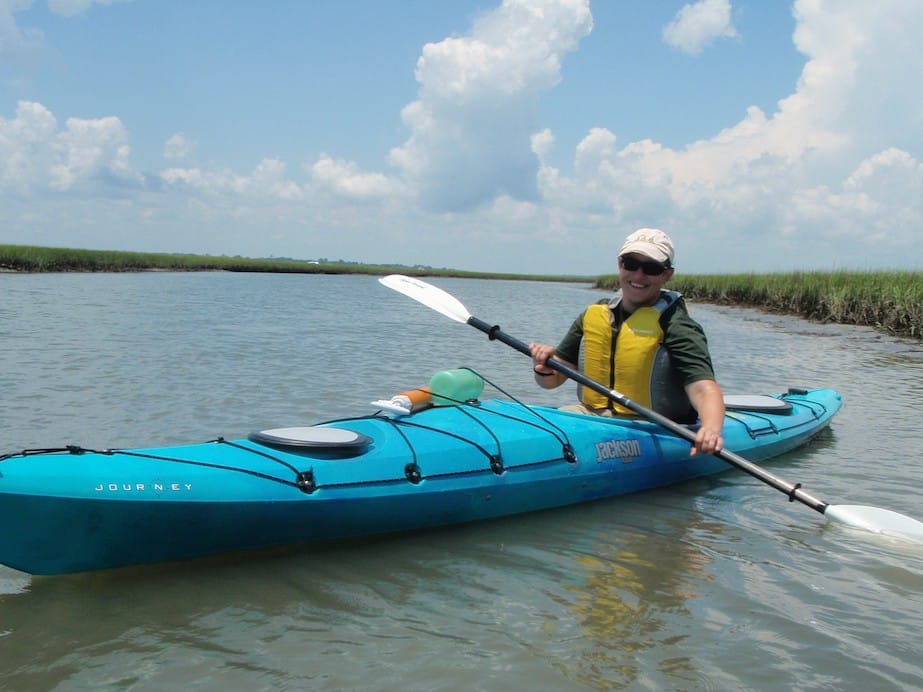Photog Cites Loss of Touch with Nature: ‘We’re creating an illusion for ourselves’
NCOAE RecommendsIn a recent CNN article by Rebecca Cairns and London-based photographer Zed Nelson, the reader is invited to reflect on how we interact with nature, and how much of that “nature” is staged. Nelson’s project, The Anthropocene Illusion, takes viewers on a global journey to see the ways we simulate wild places and wildlife while often turning away from the real thing.
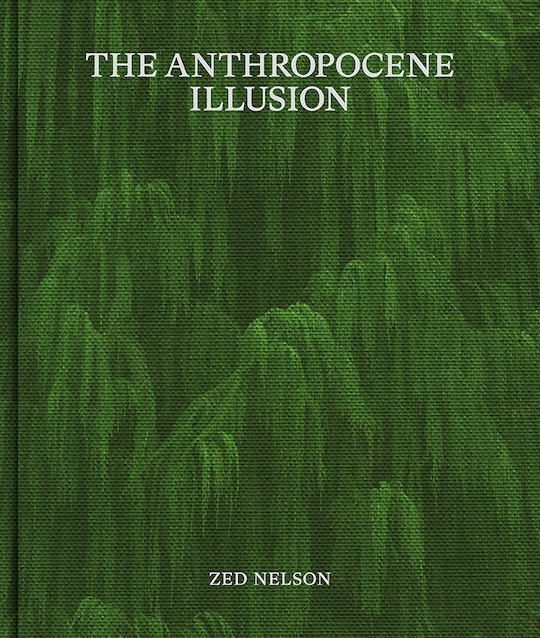
Here at The National Center for Outdoor & Adventure Education (NCOAE), this type of exploration resonates deeply with the part of our mission that speaks to inspiring stewardship and facilitating authentic experiences in the natural world.
Nelson’s photographs, which are featured in Cairnes article, capture everything from artificial safari parks to lion farms in South Africa, revealing the uneasy truth about how human-made versions of nature have sadly become commonplace. As Cairns writes:
“We’re creating an illusion for ourselves… a stage-managed version of nature where we feel we’re connecting with the natural world, but we’re not.”
Our own observations echo this. We surround ourselves with nature-themed decor ranging from beach-printed bedcovers to desktop wallpapers, all offering a fleeting sense of connection. Yet these are safe, convenient stand-ins that avoid the friction of mud, insects, unpredictable weather, and the physical challenge of being outdoors. Over time, this can (more…)
Navigating with a Map and Compass: The Bare Basics
Backcountry PrepBatteries die. Cell phones lose connectivity. Even satellite service can be unpredictable. But a map and compass? You can always count on these two “old schools” tools to discover where you are and how to get to where you’re going.
Truth is, navigating with a tried and true map and compass is an essential outdoor skill. Real explorers don’t ask Apple Maps or Google Maps for directions!
In this post, I bring you up to speed on the basics of using a map and compass in the backcountry. Here’s what you need to know:
Start with a Detailed Topographical Map
The first step is to obtain a map. If all you’re planning to do is hike well-established paths in a park, a basic trail map is all you really need. However, when you’re traveling off-road and off-path, you should have a topographical map. A topographic map shows the physical features of the land, especially its shape and elevation, as shown below.
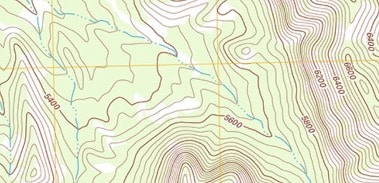
A topographical map is one of the most useful tools for wilderness navigation because it helps you visualize the terrain before you ever set foot on it.
Free Topo Maps: If you’re traveling in the United States, the U.S. Geological Survey offers free topographical maps you can download to print at US Topo. Another option is to purchase a gazetteer (a geographical “directory”) for each state in which you’re planning to travel.
Once you have your map and before you begin your backcountry or wilderness expedition, open it and familiarize yourself with its features: (more…)
Backcountry Gourmet — Favorite Recipes from Our Field Staff
Wilderness CookingHere at The National Center for Outdoor & Adventure Education (NCOAE) we like to take backcountry cooking to the next level, and that means teaching students how to prepare gourmet meals while on backcountry expeditions.
Whether it’s starting your day with a hearty breakfast, making a quick lunch wrap on the run, or preparing a veggie-filled dinner at the end of a long day hike, climb, or paddle, this post includes three backcountry recipes that might inspire you for the meals you’ll prepare and enjoy on your next adventure.
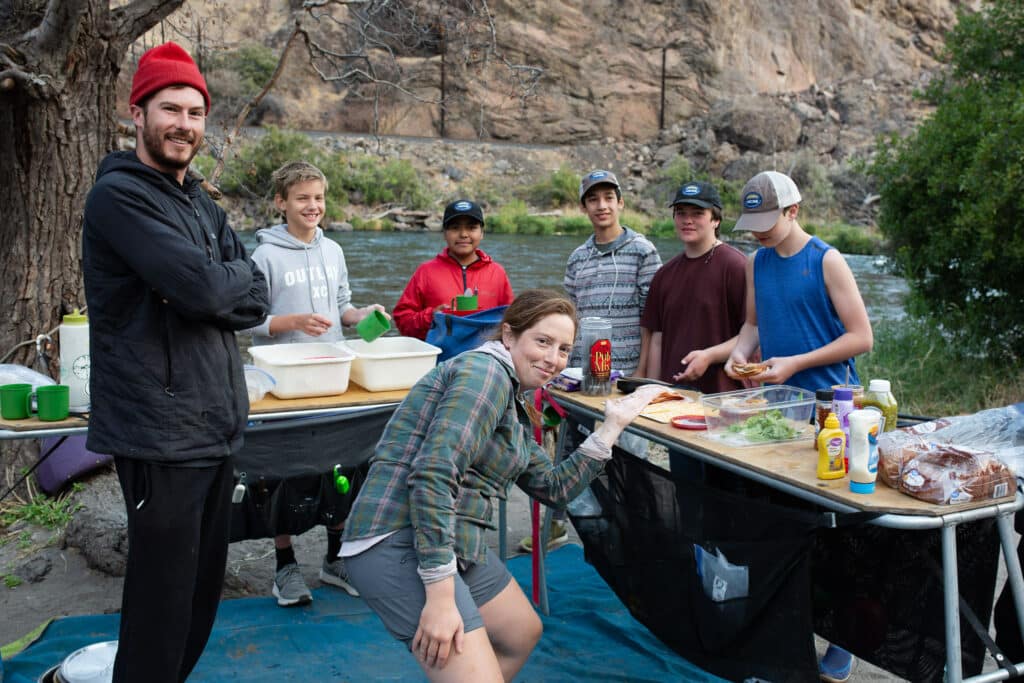
Cooking in the backcountry doesn’t mean you have to sacrifice flavor or nutrition. In fact, with a little planning and creativity you can enjoy delicious, nutritious, and satisfying meals that fuel your human-powered outdoor activities. Our field instructors have crafted these recipes to be both easy to prepare and incredibly tasty, ensuring that your time in the backcountry is complemented by great food.
Heard, Chef! When you’re in the wild, having a variety of meals that are quick and simple to prepare can make a big difference in your attitude and overall experience. The three recipes below are designed to maximize flavor while minimizing cooking time and cleanup, allowing you to spend more time enjoying the great outdoors.
At NCOAE, we believe that good food is an essential part — in fact, a highlight — of any outdoor adventure. Not only does it provide the energy needed for strenuous activities, but it also brings people together, creating memorable experiences around the campfire. So, whether you’re a seasoned outdoor chef or a beginner, give these recipes a try.
Note: The following recipes are meant for groups of 12. Do the math and adjust for the size of the group for whom you’re cooking.
Backcountry Recipe 1 – Breakfast
Breakfast Burritos with Hash Browns
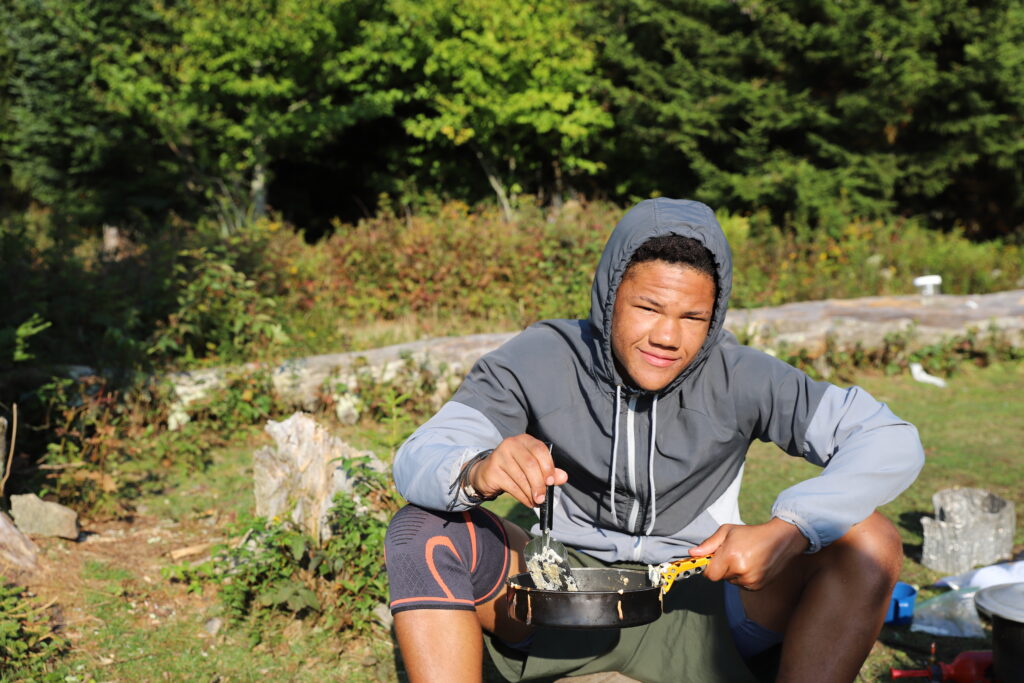
Ingredients
- 3 Cups Scrambled Egg powder or 24 Eggs
- 4 Cups Hashbrowns (dried)
- Onion, diced
- Bell Pepper, diced
- 12 Tortillas
- 1 Cup Salsa
- 2 Cups Cheese
- Salt & Pepper, to taste
- Bacon Bits, optional
- Ketchup packets, optional
- Butter / oil
Directions | Instructions | Serves 12 (more…)
Proper Water Treatment Needs to be a Priority in the Backcountry
Wilderness CookingWhile it’s true that some water sources you encounter in the outdoors are safe, know that drinking from even the most pristine looking stream or river can make you sick. There might be unseen runoff from industry, agriculture, livestock, and wildlife, and these can contribute bacteria, chemicals, and other contaminants to the very water you believe is safe to drink.
Which means you should always treat all outdoor water sources before consuming. If that recommendation is confusing or sounds somewhat limiting, consider the following: To guarantee your continued health while recreating in the outdoors, whenever possible, you should bring your own water from a known source. That includes tap water from home or bottled water from the store. The only other option is to practice water treatment techniques.
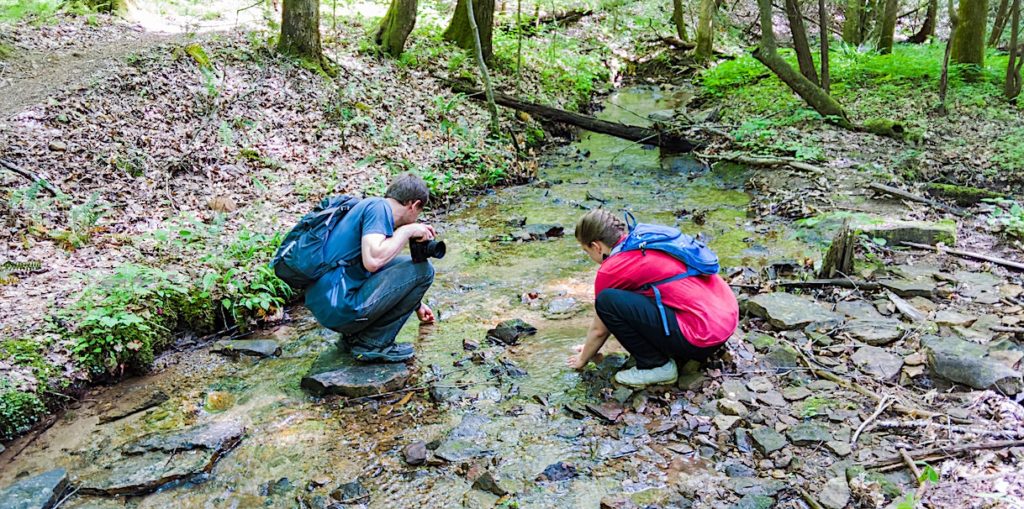
Here are some common ways to treat water:
BOILING
This method is one of the simplest and least expensive ways to treat water in the backcountry.
- Simply fill your water pot from your water source, place your pot on your stove, then bring to a full rolling boil.
- Once your water has come to a full rolling boil, allow to continue boiling for another minute to eliminate bacteria, protozoa, and some viruses.
- And if you find yourself at a higher altitude (above 6,500 feet), add another three minutes to that boiling time.
- However, boiling is not the best method when you know your water is contaminated with runoff from agriculture or chemicals.
(more…)Warning: Boiling water burns cooking fuel. You might consider saving cooking fuel for cooking and perhaps build a wood fire — assuming your backcountry permit or local ordinances allow for it — to boil water for drinking.
Gratitude is an Action Word for NCOAE Staff
Life At NCOAEGratitude is most often used as a noun, describing as it does, the feeling of being thankful. This warm and comforting word is often bandied about during the holidays, when we reflect upon all of the things for which we are grateful. But for some of us — and in particular, many of our staff members here at The National Center for Outdoor & Adventure Education (NCOAE) — we treat the word gratitude as a verb.
Great employees often live in gratitude by taking positive action. And that means being present for others, which includes listening to their issues or desires and connecting with them. It also means becoming the person that someone else is grateful for.
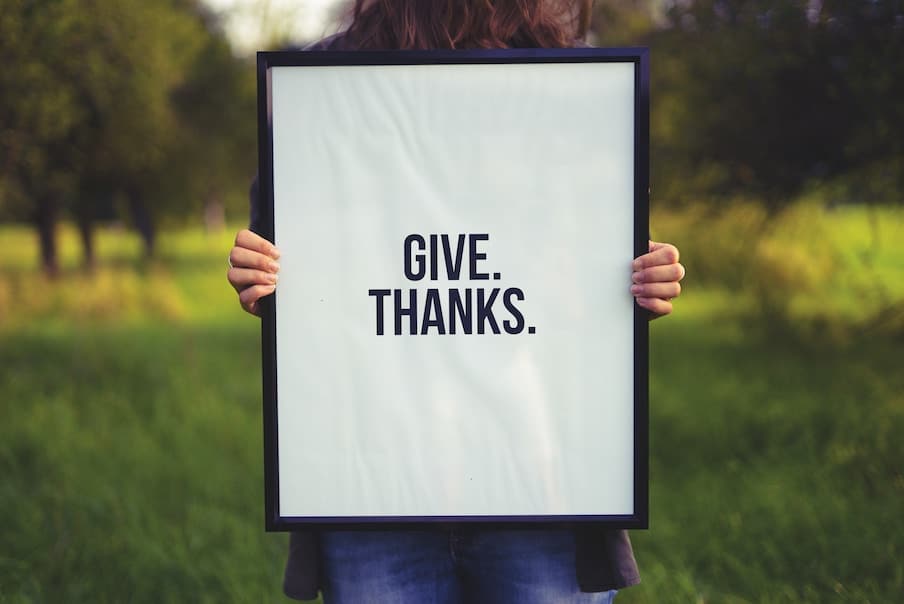
Image © Simon Maage (sourced from Unsplash)
Just before the holidays truly got underway, we asked some of our staff members to list just some of the things for which they were most grateful. We’re not the least bit surprised that some of their comments encompassed our students and fellow staffers.
Here’s their take on gratitude, in their own words: (more…)
Staff Profile: Liz Shirley, NCOAE’s Program Coordinator
Staff ProfilesHere at The National Center for Outdoor & Adventure Education (NCOAE), it’s not always necessary for employees to be front and center in order to be seen as a vital asset to our operations.
Take Liz Shirley for example. Sure, this veteran outdoor program director can often be found leading our clients on a variety of backcountry trips and programs. And to be sure, hers is a friendly face around our North Carolina headquarters. But as our fulltime program coordinator, Liz most often can be found working behind the scenes — primarily on course logistics.
This busy outdoor education industry executive is in charge of staff recruitment, training, and supervision; planning new course areas; and the always evolving processes we have in place for communicating with clients and students. She also oversees all of our trip logistics — an area of focus that includes course schedules, gear, food and transportation. In addition, Liz works with our founders to review and update our corporate policies and procedures when the need arises.
Describing herself as an outdoor jack-of-all-trades, Liz was able to tear herself away from her responsibilities to answer a few personal questions about herself for this post.
Here’s what she had to say:
NCOAE: Where did you go to college, what year did you graduate and what did you study?
Liz Shirley: I graduated in 2007 from Oklahoma State University with a Bachelor of Arts degree in English and a minor in Leisure Services. I knew by my junior year of college that I wanted to work as an outdoor professional, and I haven’t looked back.
NCOAE: What was the gateway to your outdoor addiction?
Liz: I’d have to say scouting. I began at the age of five, camping and exploring the outdoors with my troop. There was also a creek behind my house growing up, so I was often down there and in the woods tromping around — building forts, catching crawdads, etc. Then, when I was 15, my Girl Scout troop went on a five-day wilderness trip in the Boundary Waters Canoe Area Wilderness, a 1m+-acre wilderness area within the Superior National Forest in northeastern Minnesota, and after that I was hooked on the backcountry experience.
NCOAE: Who was it that most shaped your early outdoor experiences?
Liz: My parents took my brother and I camping a lot when we were young. Our family vacations almost always consisted of a visit to a state park to camp or a stay in a cabin. The place we went most often was a tucked-away campsite in Oklahoma along the banks of the Illinois River. I vividly recall pulling up through the woods in the family Buick. We’d set up camp, then spend our days swimming, fishing, canoeing, and exploring along the river. We roasted hot dogs or sometimes a fish we’d caught for dinner.
NCOAE: How have you been shaped by the outdoor places you’ve visited?
Liz: Where to start! I can’t imagine who I’d be without outdoor experiences because they totally shaped who I am today. Early experiences built my confidence and allowed me to discover a place where I belong. I found that today, I learn something at every new place I visit. I learn about the history of the area and its environment, and I learn about myself. It continually shapes me.
NCOAE: Give us a quick and dirty timeline of the progression of your outdoor experiences?
Liz: As a kid, I mostly experienced the outdoors by exploring the woods around my house, being part of family camping trips, and participating in Girl Scouts. When I was 19, I became a camp counselor and they sent me as a co-leader on a backpacking trip to the woods of Missouri. After that summer, I became a canoe guide, leading extended day wilderness expeditions in the Boundary Waters and Quetico Provincial Park (a large wilderness park in Northwestern Ontario, Canada, renowned for its excellent canoeing and fishing). My experience just grew from there. I’ve led backpacking, canoeing, kayaking, and skiing trips across the United States, and worked in many capacities as a trip leader, outdoor educator, naturalist, program director, camp director, and course director.
NCOAE: Was there ever a time when you thought this is nuts and I should quit doing this?
Liz: Never. Bring on the nuts! Seriously . . . it’s all about what you can push through. I recall one portage in the Boundary Waters where I suddenly sank chest deep in mud, with a canoe on my shoulders and mosquitoes swarming around. On a course in Alaska, my co-leader and I literally swam our canoes through the mud — participants and gear loaded up in the boats. The lake we had planned to “paddle” only had about an inch of water in it. There are many more stories and many more challenges. But that’s all part of the fun.
NCOAE: If you had a non-outdoor industry sponsor who would it be?
Liz: A coffee company that would happily provide a delicious dark roast. Enjoying unlimited free, fair trade, shade-grown coffee every morning on the trail would be excellent.
NCOAE: What excites you when you think about your future in the outdoor education industry?
Liz: All the new experiences that are out there and new skills to learn. There are so many ways to experience the outdoors and I love them all — at least every one that I’ve tried. I’m looking forward to picking up new outdoor sports, like surfing, and continually experiencing new places.
NCOAE: If you had super power strength, what would it be and why?
Liz: Flying, definitely flying. I can think of a whole new realm of outdoor experiences that could go with my new super power.
TALK TO US
Have any further questions about our courses, what you’ll learn, or what else to expect? Contact us, we’re here to help!
